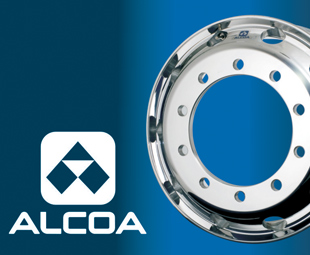Alcoa is aluminium

With over 120 years of experience in the aluminium industry, Alcoa is the undisputed global leader in the production and management of primary and fabricated aluminium. FOCUS explores the past, present and future of this pioneering company.
Although aluminium was discovered in the early 1800s, it was not until almost a century later that a process for its extraction was created that allowed the metal to be efficiently separated from bauxite ore. Motivated by a college professor who stated that “fame and fortune awaited the man who would find an inexpensive way to separate the metal”, a young student named Charles Martin Hall dedicated himself to finding a commercially feasible way of extracting aluminium.
Hall believed that by finding a water-free liquid which would dissolve aluminium oxide, he might be able to separate the metal by electrolysis. On 23 February 1886, after some initial setbacks, Hall passed a direct electric current through a molten cryolite-alumina solution. Once the mixture had been cooled and broken up, Hall saw the first shining globules of aluminium. At 22 years of age Hall had singlehandedly created the start of the aluminium industry as we know it.
The birth of Alcoa
Eager to commercialise his process, Hall joined forces with Alfred E. Hunt to form the Pittsburgh Aluminium Company in 1888. This name would be changed to the Aluminium Company of America in 1907, and eventually shortened to Alcoa in 1999.
Aware of the fact that true success required that aluminium be adopted widely as a practical commodity, the company aimed to refine its process and thereby reduce the cost of its product. The Pittsburgh Aluminium Company succeeded extremely well, managing to reduce the price from US$8 for a pound of aluminium in 1888, to just 36 cents in 1897. Hall and Hunt had created and refined a process that made aluminium a viable industry.
And over the next decades Alcoa would continue to exhibit this pioneering spirit, enabling the Wright brothers to build a light engine that could power their plane, assisting in the construction of vehicles during the Second World War and making possible the creation of aluminium consumer products like Christmas trees, beer cans and tins for canned goods from the 1960s.
Global excellence in aluminium
Today Alcoa continues at the forefront of aluminium production. The company serves the aerospace, automotive, packaging, building and construction, commercial transportation and industrial markets. It offers everything from flat-rolled products and hard alloy extrusions to wheels, fastening systems and building systems.
Alcoa can be described as a truly global company with 59 000 employees and a presence in 31 countries. The size and scope of its worldwide operations are incredibly impressive with 86 300 t of bauxite mined, 41 000 t of alumina refined and 8 810 t of aluminium products manufactured on a daily basis.
A sustainable industry
While Alcoa might produce aluminium products on an almost unimaginable scale, it is the sustainability of its operations, however, that is perhaps most remarkable.
Aluminium is by nature a surprisingly sustainable product. Approximately 70% of all aluminium ever produced is currently still in use, and Alcoa alone recycles in the region of 2 300 t of the metal every day.
The company also aims to continually improve the sustainability of its operations and has set several demanding goals that it wishes to accomplish by 2020. It hopes to drastically increase the recycled materials used in its manufactured products, aims to improve resource use with the intention of reducing its environmental footprint and wants to practise clean production to lessen environmental emissions and impacts.
Since the start of the aluminium industry Alcoa has been a leader in innovation, and at the dawn of the 21st Century it appears set to tackle the new challenges that must be met. With efficiency and sustainability promising to be the globe’s biggest future concerns, Alcoa is well ahead of the curve.
Published by
Focus on Transport
focusmagsa





 FUSO: Driving the Future of Mobile Healthc
FUSO: Driving the Future of Mobile Healthc



 New Electric Van Range Unveiled!
New Electric Van Range Unveiled!  A brand
A brand




 Wondering about the maximum legal load for a
Wondering about the maximum legal load for a 
 The MAN hTGX powered by a hydrogen combus
The MAN hTGX powered by a hydrogen combus


 Exciting News for South African Operators
Exciting News for South African Operators






